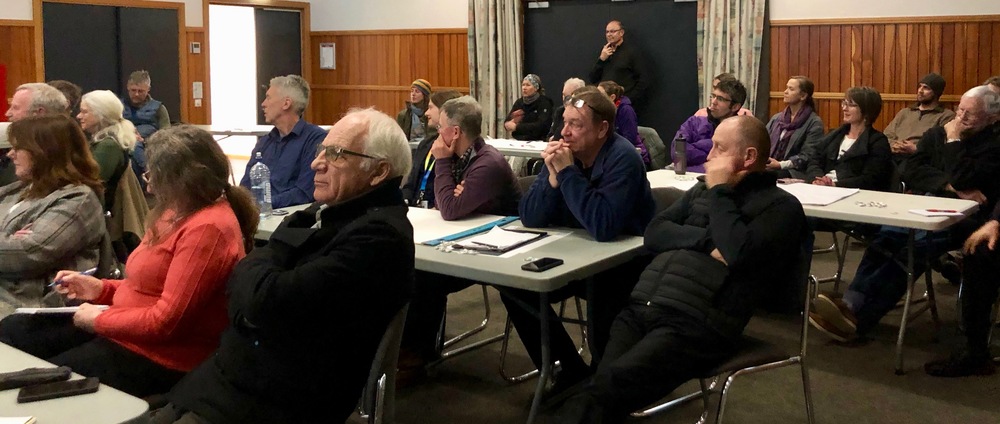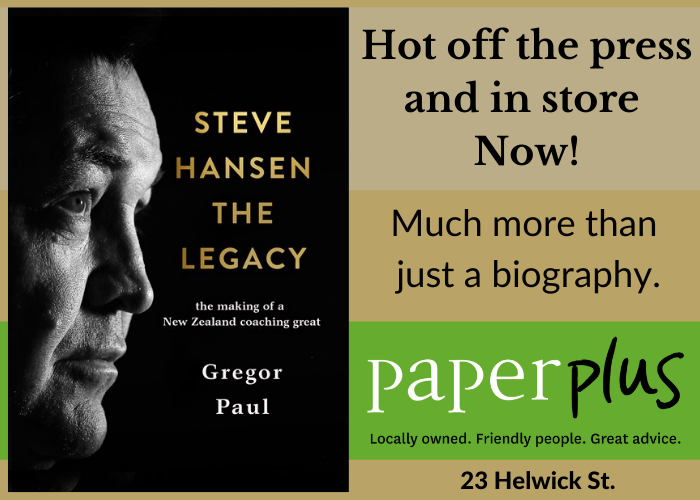Car pooling, public transport, biking - who’s ready for a mode shift?
Diana Cocks
04 August 2021, 6:06 PM
 Local roading infrastructure will not cope in the future with the district’s increased population unless more locals shift from driving cars to walking, biking or using public transport.
Local roading infrastructure will not cope in the future with the district’s increased population unless more locals shift from driving cars to walking, biking or using public transport.The habit of driving everywhere is so ingrained in many of us that switching from private vehicles to another form of transport feels almost impossible.
Yet warnings - not just from climate change specialists but also roading infrastructure planners - suggest if we don’t try adapting to different modes of transport we soon won’t have the choice.
Exploring ways to encourage drivers to ditch their private vehicles for some other form of transport was the focus of Shaping our Future’s (SOF) public meeting in Wanaka last week (July 28).
About 40 people attended SOF’s transportation meeting to consider what’s needed for locals to accept a “modal shift” from private vehicles to walking, biking, and shared or public transport.
Active travel lobby group Lightfoot Initiative’s founder Amanda Robinson said the shift in mindset doesn’t have to be an absolute - “I have to ditch my car every day - oh no”.

Members of the public as well as regional and local elected members gathered last Wednesday (July 28) to discuss future changes to transportation in Wanaka.
Small steps, such as carpooling two days a week to get the children to school, or combining multiple small trips to the supermarket, library and walking the dog, into one trip, will result in more acceptance and uptake, she said.
What is a ‘mode shift’?
Amanda was one of several volunteers from the Queenstown based Lightfoot Initiative (which is looking at ways to cooperate with Wanaka based initiatives, such as Active Transport Wanaka) to help facilitate the public feedback session during the meeting.
“Mode shift isn't really complicated,” she said. “Many of us automatically shifted modes all the time when we were younger, lived overseas or in bigger cities.”
Mode shifts, from one mode of transport to other modes, can become habit forming when a perceived benefit is the motivating factor, she said, such as saving money, improving health, modeling good behaviours to our children, avoiding traffic congestion, or enjoying a daily connection with each other by traveling more publicly.
Benefits like these mean “we're more likely to see sustained change”.
Attendees at Wanaka’s meeting were asked key questions regarding what would lead locals to make a mode shift to a different form of transportation.
The lack of public transport in the Upper Clutha and the slow development of a network of safe shared paths were issues raised regularly, as was inclement weather, a loss of independence, load and passenger carrying restrictions, age and health, distance, and cost, amongst others.
Why mode shift, or behavioural change, matters
Some of these issues were addressed by the presenters during the meeting including New Zealand Transport Agency manager of behaviour Jeremy O’Brien, Louise Baker, a specialist in travel behaviour change for WSP (an engineering and environmental consultancy), and Queenstown Lakes District councillor Quentin Smith, who is also chair of the QLDC’s infrastructure committee.
The QLDC, which is spending millions on a new arterial road in Queenstown, supports a mode shift away from private vehicles, Quentin said.
“There is no future in which we can continue to rely on the single passenger vehicle as the way that we get around,” he said.
Quentin said as the district’s population grows the council’s ability to continue to provide adequate roading infrastructure will decline. Unless at least 40 per cent of locals make a mode change, the transportation network will be dysfunctional and eventually come to a standstill, he said.
He acknowledged, however, that mode change required an investment in other transport options, such as safe walking/cycling networks and efficient, convenient public transport.
“In order to change, we need to be able to have the choice to change.”
Moving away from private vehicle dependence
New Zealand’s transportation infrastructure has been designed for private vehicles yet public transport is far safer, requires considerably less infrastructure, and produces far fewer emissions, Jeremy said.
“Forty-seven per cent of New Zealand's greenhouse gas emissions come from transport,” he said.
Through better investment and wiser land use, NZTA wants to encourage people to shift from the convenience of driving their own car by creating a similarly convenient experience in another mode of transport, he said.
WSP completed a scoping study on Queenstown traffic in 2019 looking at what motivated people to change travel habits; what were the barriers and what triggers change.
Louise said the study showed sustained behaviour change takes time and is dependent on a number of factors, including the ease and convenience of other transport options, affordability and incentives.
She provided examples from other urban areas in the world which had created a variety of travel mode incentives, such as workers shuttles, family holiday travel programmes, car free zones and secure bike parking.
Otago Regional Council (ORC) councillor Alexa Forbes, who attended the meeting, told the Wanaka App the ORC’s new regional public transport plan 2021-31 envisages public transport trials in Wanaka involving both an urban service and a commuter service between Wanaka and Queenstown, but neither trial is funded at this point.
Next steps: lobbying for mode shift
The purpose of the public sessions held in Wanaka and the following evening in Queenstown (July 29) was to “sow the seeds” of mode shift at a personal level and reignite public discussions of alternative transport options, SOF board chair Vanessa Van Uden said.
There is a willingness by Wanaka residents to shift modes before local roads get as congested as Queenstown, she said, but they need realistic and pragmatic alternatives for sustained long-term change.
Feedback from the sessions will be shared with both the QLDC and the ORC but Vanessa hoped local lobby groups, such as Active Transport Wanaka and WAO (We Are One), will keep the public conversation going at a local level, building a groundswell to motivate councils to immediately fund and create transport alternatives.
PHOTOS: Wanaka App





